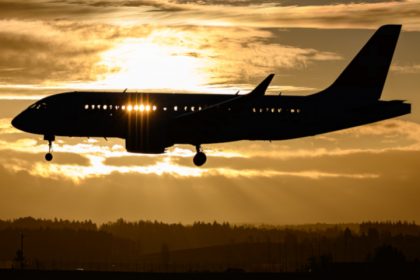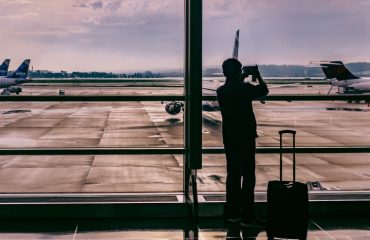How climate change will influence the world of air travel

Everyone knows that climate change is warming up our planet. We can already see the effects of this global warming happening around us. Weather patterns around the world are changing and becoming more extreme. Since air travel is very dependent on the weather, the aviation industry is extremely susceptible to the effects of climate change. Airlines and even airports will need to adapt to these changes.
We tend to think that air travel is an all-weather business. However, in winter many flights get delayed or cancelled due to bad weather conditions. What most people don’t know is that extreme heat can also cause flight issues and cancellations. Climate change is increasing the occurrence of heatwaves, changing jet streams, thunderstorms, and other extreme weather conditions that will have an impact on air travel around the globe.
On warmer days, airplanes have a more difficult task in generating enough lift to take off. The warmer the air, the thinner the air is and the more dificult it is to get airborne. To address this, airlines could reduce the takeoff weight by loading fewer passengers and/or cargo into their airplanes. Since operating costs remain unchanged, while profits are lower, the air travel industry will need to find ways to compensate this loss of profit. On extremely hot days, planes may not even be able to take off on shorter runways, as they need more distance to achieve the required speed to take off. Furthermore, some planes even aren’t allowed to fly when temperatures pass a certain threshold. This causes delays and even cancelations which will cost the industry even more.
Here in Western Europe hot summer days usually end with heavy thunderstorms. All over the world, we are experiencing more and more of these extreme weather phenomena. Aircraft are avoiding these weather phenomena and try to fly around them. Even airports stop their operations during a heavy thunderstorm or other extreme weather conditions. It is therefore not suprising that when more of these phenomena occur, more flights will be delayed or even canceled. Which again could lead to profit loss.
Climate change increases the intensity of the jet stream and will cause the position of the jet stream to shift closer to the poles. As a consequence, more and more aircrafts will experience turbulence and these events will be more intense. Airlines are changing their routes to avoid zones with high chances of turbulence, resulting in added opperating costs and longer flight times.
In other words, as a consequence of climate change, air travel is about to get a lot more expensive and less predictable than today. Next to fighting global warming, the aviation industry needs to anticipate these problems by investing in solutions to overcome these new issues. Improved technologies, adapted infrastructure and equipment, together with enhanced operations can help us to minimize the effect of climate change.




